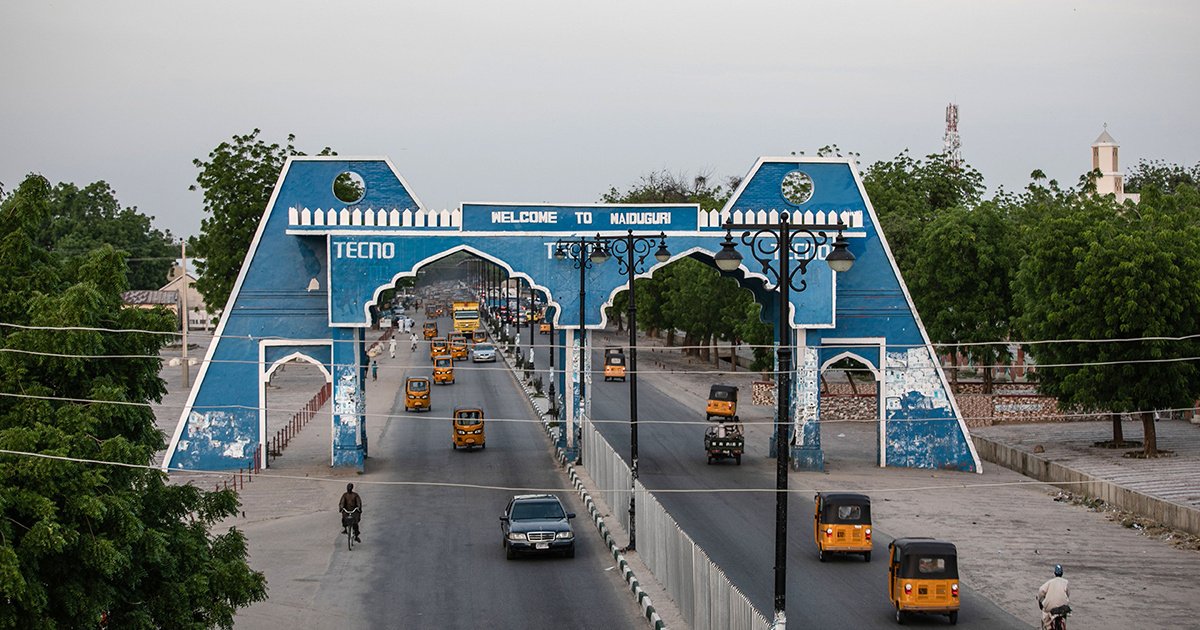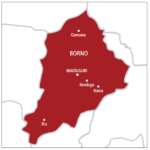Tuesday, last week was typical of the times in Maiduguri. It was the 29th day of Ramadan and the citizens had endured both the day-long hunger and thirst as enjoined.
Additionally, the scorching sun of the time with the heat rising to a crescendo of 45 degrees centigrade had dried many skins and left many throats seriously parched.
- Brekete Family: BBC unmasks the true face of ‘Ordinary President’
Persecuted at home, Igbo Muslims troop to North for succour
After 4pm, the sun had dipped and people were hurrying up from their work places to their homes to prepare for the breaking of the fast.
That’s when trouble broke out in the outer parts of the GRA, from the direction of Jiddari-Polo area. People living in circular road, a short distance away from Jiddari-Polo, the street that leads to the T-junction where one would turn right to the Giwa barracks, said when they heard the crackling rata-ta-ta-ta, boom-boom-boom sound they thought it was coming from the barracks. It was only when the sound persisted and became more frantic that it dawned upon all that the dreaded Boko Haram insurgents are in the neighbourhood. A regular bedlam ensued. Citizens streamed into other parts of the GRA and on to the main city using whatever vehicle they could lay their hands on.
It turned out that the insurgents have breached a military check-point in the southern part of the city and had attacked the Jiddari-Polo area causing pandemonium. The sound of gunfight became more intense when troops from the nearby barracks, supported by the civilian Joint Task Force (JTF), launched a counter attack. It was a battle that raged for the better part of the evening as citizens continued to run helter-skelter in the effort to evacuate themselves from the scene. By the time the sounds of guns died down, it was reported that many of the attackers were killed and I suppose, the rest just faded into the night with their loots.
It would be the umpteenth time these desperate elements have caused an uproar in that part of the city. Despite the overwhelming presence of Giwa Barracks in the vicinity plus one or two checkpoints, the insurgents have always found it easy breaking into the security cordon. They are able to do so may be because they are probably massed in the many villages that share some contiguity with Damboa road – a well-known stretch that had proved to be difficult to secure. The insurgents have been known to break in from the direction of that road through Molai, the village in the far in the far outskirts, Jiddari and Kayamla village which is closer to Giwa barracks. They have always had the capacity to cause surprise at any time of the day and night and wreck the kind of mayhem they intended and vanish. The insurgents had even attacked Giwa barracks repeatedly particularly in those days of 2014/15 when they more grounded within Maiduguri.
The grim Tuesday evening, from my perspectives, is just another addition to a series of woes that have befallen Maiduguri particularly in recent times. In February Boko Haram terrorists were able, for the first time, to fire rockets into the centre of Maiduguri killing at least 10 persons. Those who know Maiduguri well enough can understand the gravity of a rocket reaching Adamkolo, a ward that is so central and is in close proximity to Shehuri, where the palace of the Shehu of Borno is situated.
Maiduguri has been without electricity for the past four months when the insurgents deliberately incapacitated the transmission line running from Damaturu. All efforts by the Transmission Company of Nigeria (TCN) to repair and restore electricity to the city have so far come to naught. The terrorists that caused it have been openly gloating that Maiduguri would never see electricity again. And the deafening silence from the TCN seems to admit that to be so. However, there might be a glimmer of hope as the Nigerian National Petroleum Corporation (NNPC) had promised to dedicate a gas power plant to Maiduguri which should serve its current power needs. As promised by Mele Kyari Kolo, the Managing Director NNPC, during an April visit to Maiduguri, the gas power plant will be ready by August. The details of where it is being built and how the gas would be supplied all seem now to be shrouded in secrecy. But a city seeking for a lifeline can only hope and wait.
Besides these woes there had been the existing one of the isolation of Maiduguri from the rest of the world. For years most of the roads leading into Maiduguri had been rendered impassable by the insurgents. The exception used to be the main artery coming from Damaturu. Last year the insurgents massed themselves along that road to make it totally unsafe. To drive their point home, they even ransacked the military super camp at Mainok in April.
Among the residents of Maiduguri there is a sense of resignation that whatever that is possible, to alleviate the situation, has been done. The military without the wherewithal is overwhelmed. The political leadership both in the state and the National Assembly have cried themselves hoarse to no avail. It is a lamentable predicament without an immediate solution. Maiduguri can only wait and hope.

 Join Daily Trust WhatsApp Community For Quick Access To News and Happenings Around You.
Join Daily Trust WhatsApp Community For Quick Access To News and Happenings Around You.


